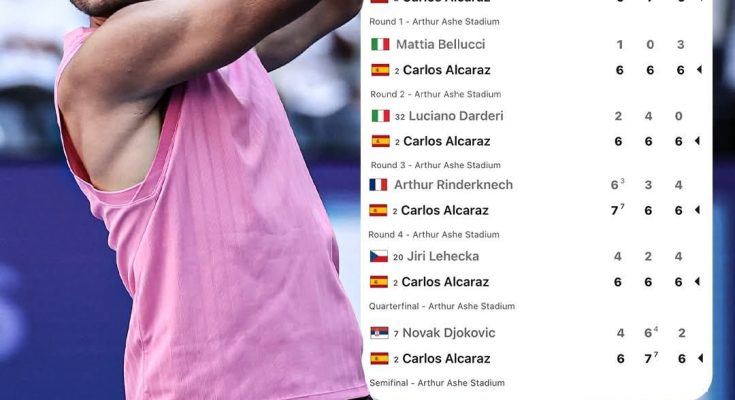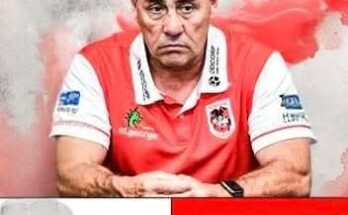The Philadelphia Eagles’ defensive tackle Jalen Carter was ejected from the game in a shocking and highly controversial moment that instantly became the focal point of the contest and has since ignited a firestorm of reactions across social media and sports networks. The incident unfolded when Carter, known for his aggressive playing style and physical dominance on the defensive line, crossed a line that no player should. Midway through a heated rivalry game against the Dallas Cowboys, Carter spat directly on Cowboys quarterback Dak Prescott, an act that is universally condemned in professional sports for its disrespectful and unsportsmanlike nature.
This egregious act led to an immediate response from the officials, who wasted no time in ejecting Carter from the game. The ejection is a significant blow to the Eagles, who rely heavily on Carter’s ability to disrupt the opposing offense and apply pressure in the trenches. The moment was captured on multiple camera angles and replayed incessantly on sports shows, further amplifying the fallout from what was supposed to be a fiercely contested game between two NFC East rivals. The rivalry itself is storied and intense, with both teams historically competing for division supremacy, but the incident between Carter and Prescott has now overshadowed all other aspects of the matchup.
The context leading up to the incident adds layers to the story. Both teams had been playing with high physicality and emotions were clearly running hot. The Cowboys, with Prescott under center, were executing a balanced offense trying to establish rhythm against a defense led by Carter. On a crucial defensive series, Carter engaged Prescott with aggressive moves in the pocket, trying to unsettle the quarterback and force a hurried throw. The tension culminated when Carter, seemingly frustrated by a missed tackle or a big play by Prescott, leaned in and spat directly in Prescott’s direction. The act was blatant, intentional, and caught the attention of everyone in the stadium, as well as millions watching live broadcasts.
Spitting on an opponent is a severe breach of professional conduct and sportsmanship. It is an insult that goes beyond the physical play and strikes at the character and dignity of the player targeted. For Prescott, a veteran quarterback known for his poise and leadership, being on the receiving end of such disrespect was understandably infuriating. His reaction was one of disbelief and outrage, and it set the stage for potential escalation that thankfully was contained by the officials and team staff. The Cowboys rallied around Prescott, both on the field and publicly afterward, condemning the act and standing united in their support for their leader.
For the Eagles, the incident casts a shadow over the team’s discipline and leadership. Head coach Nick Sirianni was seen visibly frustrated on the sidelines, knowing that losing a key defensive player to ejection could derail their game plan and impact their chances of winning a critical divisional matchup. In post-game comments, Sirianni acknowledged the seriousness of the incident, emphasizing that while emotions run high in rivalry games, certain behaviors are unacceptable and will not be tolerated. The team’s management and league officials are expected to review the incident closely, with the possibility of further disciplinary actions such as fines or suspensions looming over Carter’s future.
From a broader perspective, the incident sparks an important conversation about player conduct, respect, and the boundaries of competitive aggression in professional football. The NFL has a long history of trying to balance the intense physicality and competitive nature of the sport with maintaining a standard of professionalism and sportsmanship. Incidents like this challenge the league to enforce its rules strictly and send a clear message that disrespectful behavior, particularly acts as blatant as spitting on an opponent, will be met with severe consequences. Fans, analysts, and former players weighed in on the situation, with many expressing disappointment and calling for accountability.
Social media exploded almost instantly after the incident, with reactions ranging from shock and condemnation to discussions about the rivalry’s intensity. Some fans defended Carter as a passionate player caught up in the heat of the moment, but the overwhelming consensus was that the behavior was unacceptable regardless of the context. Many highlighted that such acts not only tarnish the player’s reputation but also reflect poorly on the team and the league as a whole. There were also numerous calls for the NFL to implement harsher penalties for similar conduct in the future to deter players from crossing such lines.
For Dak Prescott, the incident added an extra layer of motivation. Prescott, who has faced his share of challenges and criticism throughout his career, used the situation as fuel to elevate his performance on the field. After the game, Prescott spoke candidly about the incident, calling for respect among players and emphasizing that while football is a contact sport filled with tough competition, certain actions have no place in the game. His measured response helped steer the narrative away from escalating conflict and toward a focus on accountability and professionalism.
The ejection of Jalen Carter also raises questions about the impact on the Eagles’ defensive strategy moving forward. Losing a dominant interior lineman affects not only the current game but can influence the team’s approach to upcoming matchups. Defensive coordinators must adapt quickly to personnel changes, and opponents may see an opportunity to exploit the absence of Carter’s presence on the line. The Eagles’ coaching staff will be under pressure to find ways to compensate for the loss and maintain their defensive intensity despite the setback.
Meanwhile, the NFL’s disciplinary committee is likely to convene to discuss appropriate sanctions for Carter beyond the ejection. The league has strict policies regarding unsportsmanlike conduct and has previously handed down suspensions and fines for similar incidents. The severity of Carter’s action—spitting on an opponent—could lead to a multi-game suspension, which would be a significant punishment given his importance to the team. The league’s decision will be closely watched, as it will set a precedent for how such behavior is addressed in the future.
In terms of media coverage, the incident dominated sports headlines for days, overshadowing other major stories in the league. Analysts debated the implications for the NFC East standings and the rivalry’s future intensity. Some speculated whether the incident could spark a broader escalation between the two teams, while others hoped that cooler heads would prevail and the focus would return to football. The narrative quickly evolved from the game’s on-field action to the ethics and sportsmanship within professional football.
Fans of both teams expressed mixed emotions. Cowboys fans rallied behind Prescott, praising his professionalism and resilience, while Eagles fans were left to grapple with the embarrassment of Carter’s actions. Some Eagles supporters called for understanding and forgiveness, recognizing the emotional nature of rivalry games, while others demanded accountability and greater discipline from their team’s star players. The incident sparked numerous debates about the culture within football locker rooms and the pressures players face to perform aggressively.
As the fallout continued, the broader sports community reflected on the lessons to be learned from the incident. Coaches, players, and league officials reiterated the importance of maintaining respect and integrity on the field. The NFL emphasized its commitment to player conduct policies and reiterated that actions detrimental to the spirit of competition would be met with firm consequences. The incident served as a reminder that, despite the high stakes and emotional intensity, football remains a game that demands respect for opponents and the rules that govern play.
In summary, Jalen Carter’s ejection for spitting on Dak Prescott was a moment that transcended the immediate game and sparked widespread discussion about sportsmanship, respect, and discipline in professional football. The act itself was a blatant violation of the unwritten code among athletes and brought swift consequences. Both teams were affected—Dallas by the disrespect shown to their quarterback and Philadelphia by the loss of a key defensive player. The incident will likely have lasting repercussions for Carter’s career and the Eagles’ season, while also serving as a cautionary tale about the importance of maintaining professionalism amid fierce competition. The NFL’s response and the players’ handling of the situation moving forward will be critical in shaping the league’s culture and the expectations placed on its stars.



